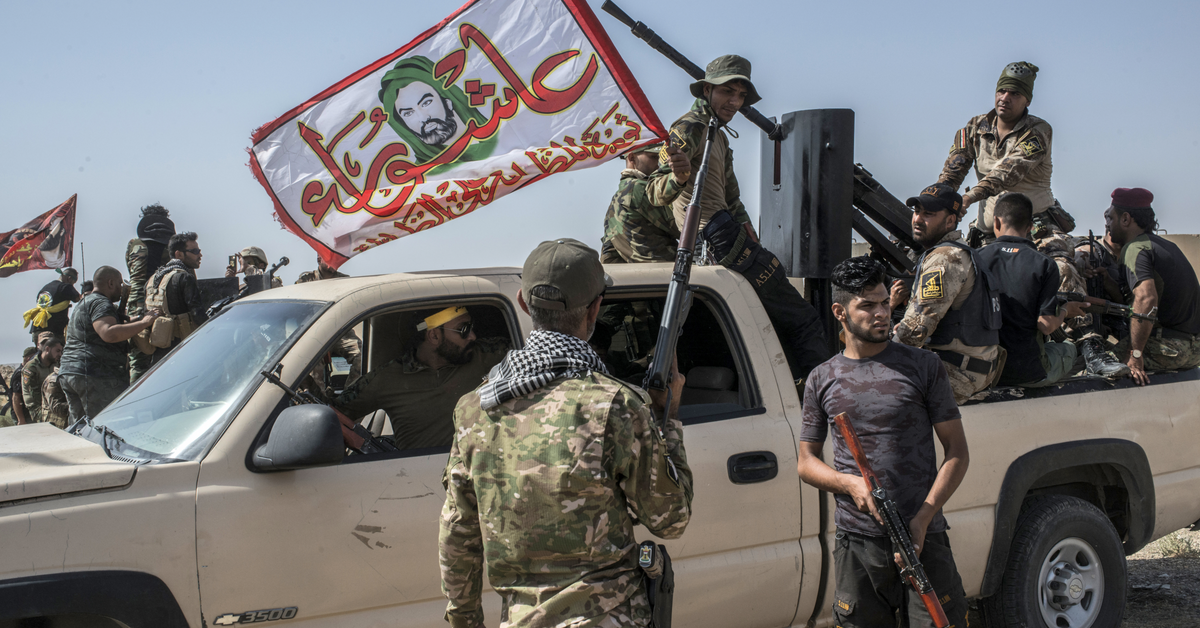Iran Viewer
@IranViewer
17m
.
@IranViewer
has learned that the building which came under attack on Wednesday belongs to Iran’s Centrifuge Technology Company. TESA is the only factory producing centrifuges in Iran and is under US sanctions since 2011.
Hummm......
Posted for fair use.....

Suspected Iranian nuclear production plant hit by drones, Tehran claims ‘sabotage attack’ | The Rahnuma-E-Deccan Daily
LONDON (RAHNUMA): A drone attack on a building in Iran, thought to be a nuclear facility, has caused considerable damage, it was claimed Thursday, despite Tehran stating on Wednesday it had foiled the “sabotage” attempt on the building. At least one small rotor-powered drone hit a factory owned...
 www.therahnuma.com
www.therahnuma.com
Suspected Iranian nuclear production plant hit by drones, Tehran claims ‘sabotage attack’
13 hours ago
1 minute read
LONDON (RAHNUMA): A drone attack on a building in Iran, thought to be a nuclear facility, has caused considerable damage, it was claimed Thursday, despite Tehran stating on Wednesday it had foiled the “sabotage” attempt on the building.
At least one small rotor-powered drone hit a factory owned by the Iran Centrifuge Technology Co. in Karaj, according to a US intelligence tip off published by the New York Times.
The factory, just outside Tehran, is believed to produce aluminium blades for use in Iran’s two uranium enrichment facilities at Natanz and Fordow, UK paper The Times reported.
Israeli media also said the building had been hit in an attack, with some reports saying it had involved “several” drones.
There was no immediate comment or attribution of blame from either Israel or Iran.
The incident “left no casualties or damages and was unable to disrupt the Iranian nuclear program,” Iranian state television said, before adding that authorities were now working to identify the perpetrators.
The International Atomic Energy Agency (IAEA), the UN body that monitors Tehran’s nuclear program, did not immediately respond to a request for comment.
The factory was allegedly on a list of targets presented to the administration of former US President Donald Trump last year by Israel, which regards the Iranian nuclear program as a cover for developing nuclear warheads, a claim denied by Tehran.
The incident follows several sother uspected attacks targeting Iran’s nuclear program that have heightened regional tensions in recent months, amid diplomatic efforts to resurrect Tehran’s tattered nuclear deal, the Joint Comprehensive Plan of Action (JCPOA), with world powers.
Trump’s decision to withdraw from the deal in 2018 has seen Iran, over time, abandon all limitations on uranium enrichment. The country is now enriching uranium to 60 percent, its highest ever levels, although still short of those required to develop weapons.
Iran has said that its nuclear ambitions are peaceful and that it will return to its commitments once the US lifts sanctions imposed after Trump withdrew from the JCPOA.
Earlier this week, Iran’s sole nuclear power plant at Bushehr underwent an unexplained temporary emergency shutdown. Authorities had warned earlier this year of the plant’s possible closure because of US sanctions that supposedly prevented Iran procuring equipment for repairs.
In April, Iran’s underground Natanz nuclear facility experienced a mysterious blackout that damaged some of its centrifuges. Last July, unexplained fires struck the advanced centrifuge assembly plant at Natanz, which authorities later also described as sabotage. Iran now is rebuilding that facility deep inside a nearby mountain.
* With AP
















